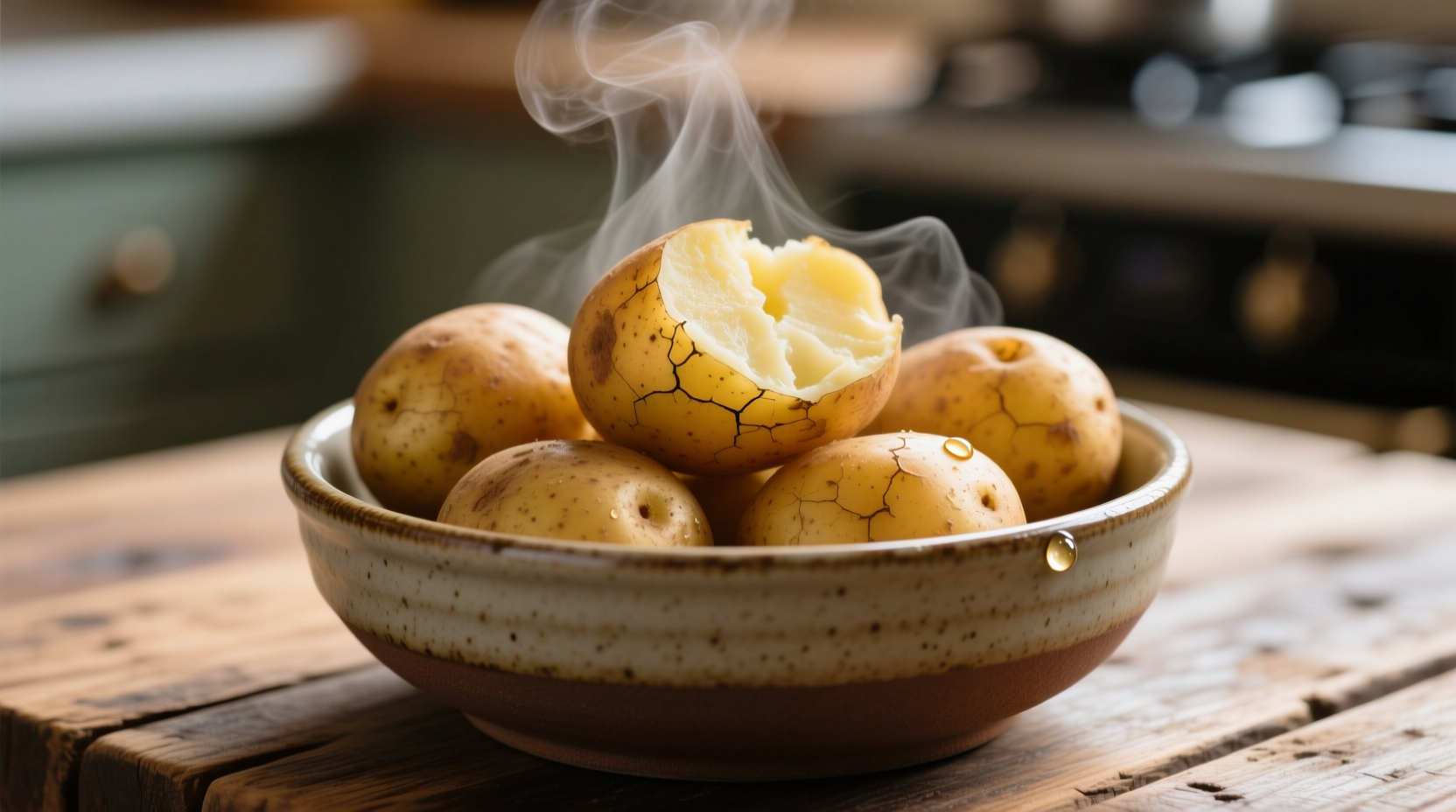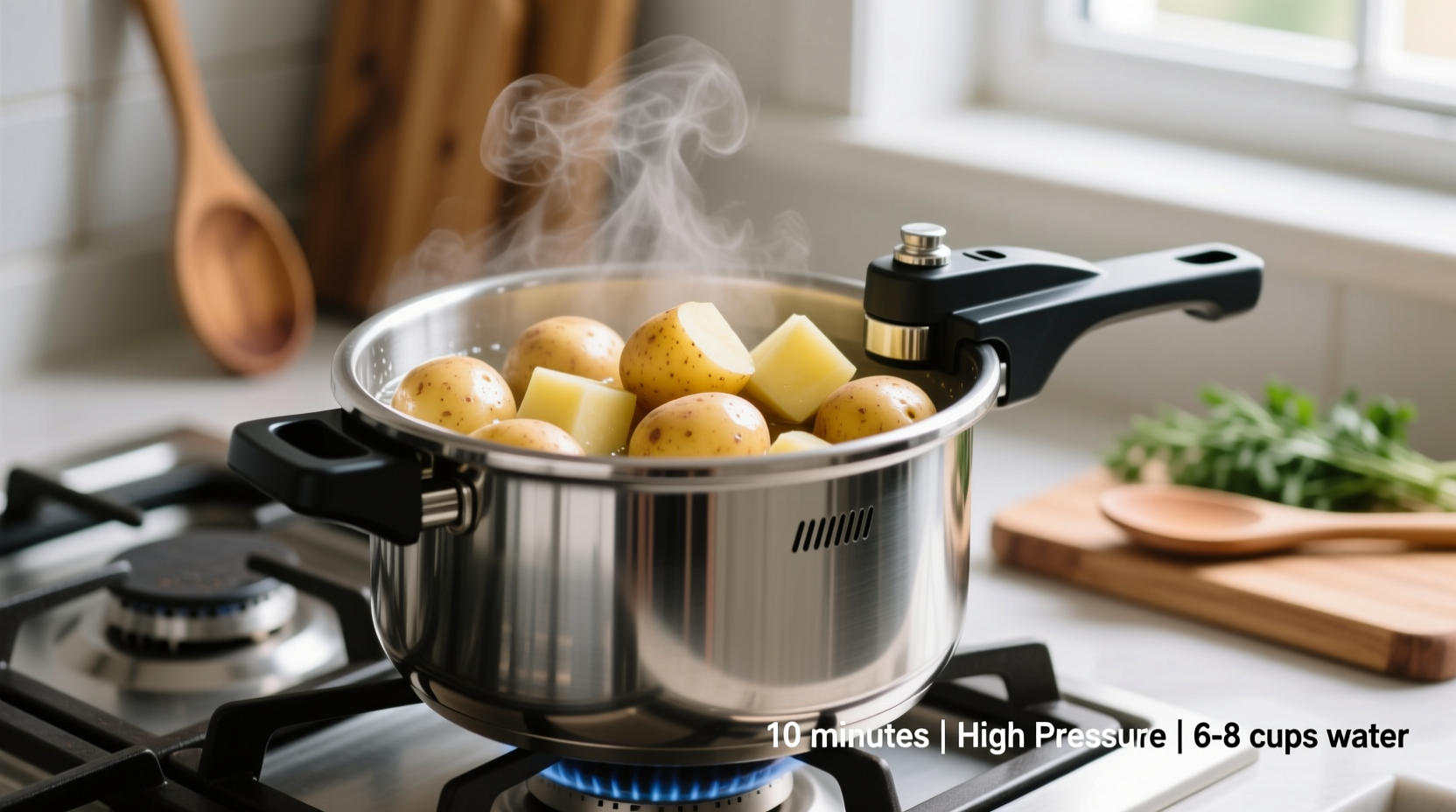Pressure cooking potatoes takes 5-8 minutes for cubed potatoes and 15-20 minutes for whole potatoes at high pressure, followed by a 5-10 minute natural release. Cooking time varies based on potato type, size, and desired texture. Always use at least 1 cup of liquid and ensure proper venting for safe operation.
Discover exactly how long to cook potatoes in a pressure cooker for perfect results every time. Whether you're making mashed potatoes, roasted potatoes, or adding them to stews, this comprehensive guide eliminates guesswork with precise timing, professional techniques, and science-backed methods that guarantee fluffy interiors and firm exteriors without overcooking.
Why Pressure Cooking Transforms Potato Preparation
Pressure cooking reduces potato cooking time by up to 70% compared to traditional boiling while preserving nutrients better than boiling. The sealed environment creates steam pressure that penetrates potato cells faster, breaking down starches more efficiently. Professional kitchens rely on this method for consistent results when preparing large batches, but home cooks often struggle with timing variables. Understanding these key factors ensures perfect potatoes regardless of your pressure cooker model.
Key Variables Affecting Cooking Time
Several factors determine exactly how long to cook potatoes in pressure cooker settings. Recognizing these variables prevents the common pitfalls of mushy or undercooked potatoes.
Potato Type Matters Most
Starchy potatoes like Russets cook faster than waxy varieties like red potatoes. Yukon Golds fall in the middle, offering the best balance for most pressure cooking applications. The USDA's Food Safety and Inspection Service confirms that starch content directly impacts cooking time requirements, with higher starch varieties requiring less time under pressure.
| Potato Type | Cubed (1-inch) | Whole (small) | Natural Release |
|---|---|---|---|
| Russet | 6-8 minutes | 18-20 minutes | 8 minutes |
| Yukon Gold | 5-7 minutes | 15-18 minutes | 7 minutes |
| Red Potatoes | 7-9 minutes | 20-22 minutes | 10 minutes |
| Sweet Potatoes | 8-10 minutes | 22-25 minutes | 10 minutes |
Cutting Consistency Ensures Even Cooking
Uniform 1-inch cubes cook evenly in pressure cookers. Inconsistent sizing causes some pieces to overcook while others remain hard. America's Test Kitchen research shows that varying cube sizes by just 1/4 inch creates significant texture differences in pressure-cooked potatoes. Always use a sharp knife on a stable cutting board for precise, even pieces.

Step-by-Step Pressure Cooking Process
Follow this professional technique for flawless potatoes every time, whether you're using an Instant Pot, stovetop pressure cooker, or other electric model.
Preparation Essentials
Peel potatoes only if desired (skin-on retains more nutrients). Rinse thoroughly to remove dirt and excess starch. For even cooking, cut into uniform 1-inch cubes or leave small potatoes whole. Never stack potatoes more than two layers deep in the cooker to ensure proper steam circulation.
Liquid Ratios and Additions
Use exactly 1 cup of liquid per 2 pounds of potatoes. Water works perfectly, but broth or milk creates richer flavor for mashed preparations. Avoid acidic ingredients like vinegar or tomatoes during cooking, as the USDA Food Safety guidelines note that acidity interferes with starch gelatinization, leading to uneven cooking. Add salt to the liquid, not directly on potatoes, for better flavor distribution.
Pressure Cooking Settings
Set to HIGH pressure for all potato types. Cooking time begins only after the cooker reaches full pressure (typically 8-12 minutes of heating time). For cubed potatoes, 6 minutes is ideal for firm results suitable for salads, while 8 minutes creates perfect mash texture. Whole small potatoes need 18 minutes for fork-tender results without disintegration.
Natural Release vs. Quick Release: Texture Control
The release method significantly impacts final texture. Natural release (allowing pressure to drop gradually) prevents starch explosion that causes mushiness. Quick release can make potatoes watery and unevenly cooked. For most applications, allow 5-10 minutes of natural release before carefully performing quick release. Sweet potatoes require full natural release (15 minutes) to maintain structure.
Troubleshooting Common Issues
Even experienced cooks encounter challenges with pressure-cooked potatoes. These solutions address the most frequent problems.
Undercooked Potatoes
If potatoes remain hard after cooking, they likely weren't submerged in enough liquid or the cooker didn't reach full pressure. Add 1/2 cup water, return to high pressure for 2-3 minutes, then allow 5 minutes natural release. Never open the cooker prematurely, as this resets the entire cooking process.
Mushy or Waterlogged Results
Overcooked potatoes usually result from excessive cooking time or improper release. For future batches, reduce time by 1-2 minutes and extend natural release. If already overcooked, spread potatoes on a baking sheet and roast at 400°F for 15 minutes to restore texture for roasting applications.
Advanced Techniques for Perfect Results
Elevate your pressure-cooked potatoes with these professional methods that account for elevation, appliance differences, and flavor enhancement.
High Altitude Adjustments
At elevations above 3,000 feet, increase cooking time by 5% for every 1,000 feet. The University of Colorado Extension confirms that lower atmospheric pressure at elevation reduces the boiling point, requiring longer cooking times to achieve the same results. A Denver cook (5,280 feet) should add 10-12% to standard cooking times.
Flavor Infusion Methods
Add herbs and garlic to the cooking liquid for subtle flavor penetration. For stronger infusion, toss cooked potatoes immediately with melted butter and fresh herbs while still warm. The residual heat allows flavors to absorb without additional cooking time that might compromise texture.
When Not to Use Pressure Cooking for Potatoes
While pressure cooking excels for many applications, certain potato preparations work better with traditional methods. Roasting requires dry heat for proper caramelization that pressure cooking cannot achieve. Similarly, French fries need the oil immersion of deep frying for proper texture development. Pressure cooking shines for applications where moist heat is beneficial: mashed potatoes, potato salads, soups, and stews.
Storage and Reheating Guidelines
Cool pressure-cooked potatoes within 2 hours of cooking. Store in airtight containers for up to 5 days. Reheat in a covered dish with 1 tablespoon water at 350°F for 15 minutes, or microwave with a damp paper towel for 2-3 minutes. Avoid reheating in the pressure cooker, as this typically overcooks the exterior while warming the interior.
Frequently Asked Questions
Find quick answers to the most common pressure cooking potato questions.











 浙公网安备
33010002000092号
浙公网安备
33010002000092号 浙B2-20120091-4
浙B2-20120091-4